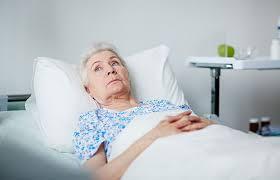
How to Support the Rehabilitation of Seniors After a Heart Surgery
While there are no statistics on the rate of heart surgery among seniors worldwide, it is estimated that between 1-1.5 million cardiac surgical procedures take place annually with 300,000 taking place in the US. Unfortunately, heart surgery is an invasive procedure entailing incisions to the chest to access the heart. Therefore, recovery after the procedure is crucial . The good news is there are many ways to support seniors after a heart surgery from medication and exercise to diets and counselling.
Why Cardiac Rehab?
There are several types of heart surgery, each one designed to address special cardiac conditions. For example, transcatheter aortic valve implantation or TAVI procedure is becoming increasingly common among seniors. It is an alternative to open-heart surgery for patients with aortic stenosis, a medical condition where the aorti valve narrows, restricting blood flow. Not only is the procedure less invasive, it also offers quick recovery and is suitable for seniors who may not support open-heart operations due to their age or other health conditions. Nonetheless, whether it’s a TAVI, angioplasty, or ablation, recovery from the procedure is critical for a successful outcome allowing the body to heal, regain strength, and reduce the risk of complications.
Home Care Support
Therefore, upon discharge from the hospital, it is vital that the senior patient receives quality home care support. Ensure that the environment is safe and comfortable. Ahead of a discharge, organize mobility aids such as canes, or walkers. Clear pathways and prepare a bed with rails on the first floor when possible. Furthermore, the bathroom must be adapted by equipping it with non-skid mats, shower seats, and grab bars.
Medication is also an important part of recovery. Consequently, it is necessary to prepare all the medications for the senior patient. Plan schedules in advance and enlist the help of trusted family members or friends. If there is no one to help out, use the services of home caregivers who can also monitor vital signs, assist with meds, encourage exercise, manage symptoms, prepare healthy meals, and even provide emotional support. Meals, transportation to therapy, and post-op appointments must be arranged ahead of time. It’s also a good idea to understand the procedure to avoid unnecessary fears and to keep the patient informed and confident. In addition, you will want to know what to watch out for so that you can gauge whether or not to seek medical intervention.
Outside of the Home
Key components of a cardiac rehab includes exercise which is a gradual increase of physical activity under the guidance of a healthcare professional. It can be done at home or outside of the house. Educating the patient about heart health, medications, and lifestyle changes also form part of rehab. Furthermore, the patient must address emotional and psychological aspects of heart disease which can be done outside of the home environment through counselling which can be individual or group therapy. The latter can indirectly address social isolation issues as well according to a study by Norekval and Allore.
All in all seniors, who have undergone heart surgery need intensive support from friends and family as well as the medical community. Home care support including medication management, nutrition, and exercise are crucial while outside of the home environment, education, physical activity, and counselling contribute to recovery.